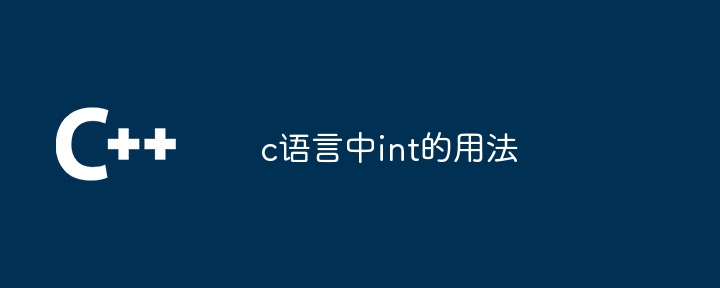Home >Backend Development >C++ >Usage of int in c language
Usage of int in c language
- 下次还敢Original
- 2024-04-29 22:00:28587browse
int is an integer type in C language that stores an integer between the lowest value and the highest value. It can be used to declare variables, initialize variables, perform arithmetic and comparison operations, and bitwise operations. The int type can be ranged using the short, long, long long modifiers.

int Usage in C language
int is a data type used to represent integer types in C language . It can store integers between the lowest and highest values, with the range varying between systems and compilers.
Usage:
- Declare variables: int variable_name;
- Initialize variables: int variable_name = value;
- Arithmetic operations: int can use addition (), subtraction (-), multiplication (*), division (/), remainder (%) ) and other arithmetic operators to perform arithmetic operations.
- Comparison operations: int can use equality (==), inequality (!=), greater than (>), less than (<), greater than or equal to (>=) , less than or equal to (<=) and other comparison operators for comparison.
- Bitwise operations: int can use bitwise AND (&), bitwise OR (|), bitwise XOR (^) and other bitwise operators for bitwise operations.
Type modifiers:
- #short: Creates a 16-bit integer with a smaller range (usually between -32,768 to 32,767).
- long: Creates a 32-bit integer with a large range (usually between -2,147,483,648 and 2,147,483,647).
- long long: Creates a 64-bit integer with the largest range (usually between -9,223,372,036,854,775,808 and 9,223,372,036,854,775,807).
Note:
- int variables are not initialized by default and should be initialized before use.
- The int type has a limited range, so the long long type should be considered when storing large integers.
- Casting should be used with caution when converting integers of different types, as it may result in data loss or overflow.
The above is the detailed content of Usage of int in c language. For more information, please follow other related articles on the PHP Chinese website!

